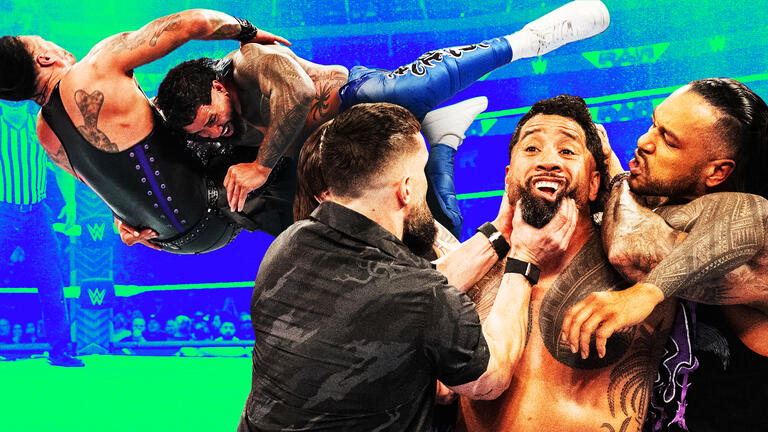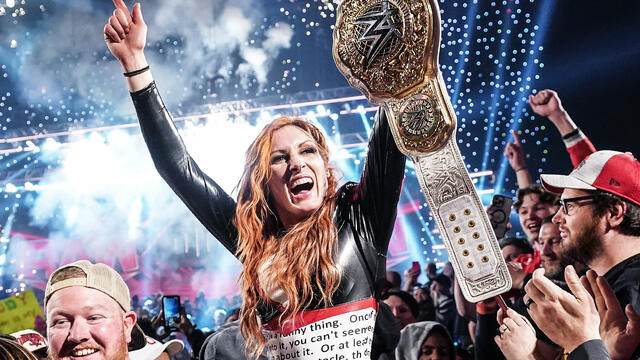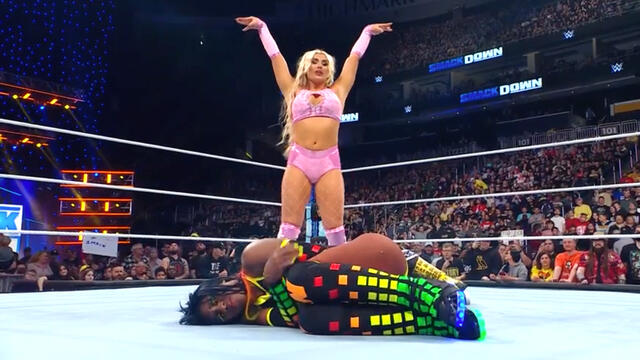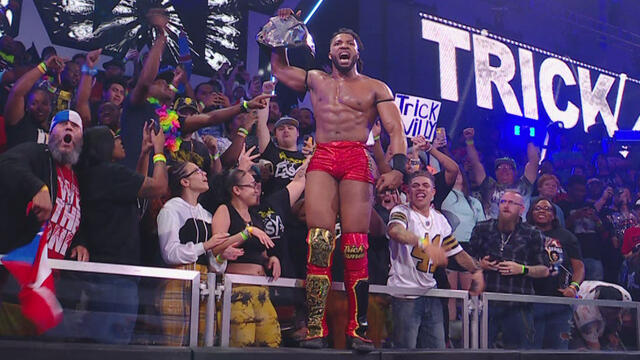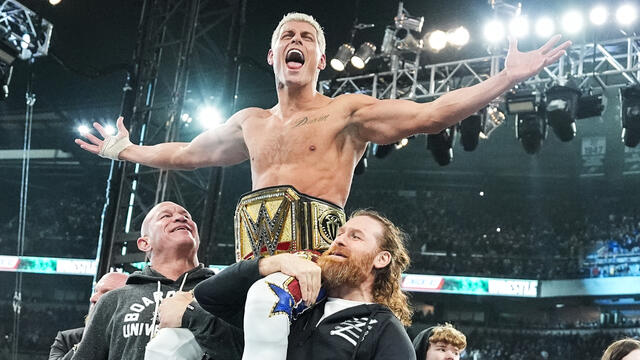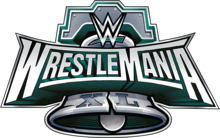Mick Foley and his son, Dewey, reflect on Cactus Jack's infamous "Cane Dewey" rant

Some 18 years ago in the back of a bingo hall in Philadelphia, Mick Foley delivered a tirade that has long stood as the most passionate and haunting of his career. Known as “Cane Dewey,” the rant found Foley — then competing as Cactus Jack — addressing a fan who had written the words “Cane Dewey” on a sign — a sickening message pointed at Foley’s then-three-year-old son.
Two decades later, WWEClassics.com had the opportunity to sit down with Foley and his 21-year-old son, Dewey, in a small office in East Rutherford, N.J.’s IZOD Center. Find out how father and son felt about the most personal interview of the WWE Hall of Famer’s career.
WWECLASSICS.COM: Mick, “Cane Dewey” was your highest ranking interview on our list of “The 25 greatest mic moments in wrestling history.” Do you think it’s your personal best?
MICK FOLEY: Yeah, I’d say top two or three. Even though I might rank a couple of others higher, I think the fact that it actually has a two-word name that is used regularly 18 years after I delivered it for a small promotion is proof that most guys would consider it the No. 1 promo I’ve given.
WWECLASSICS.COM: You’ve said how many of the interviews you delivered during this time came from a place of personal frustration. Was that the case here?
MICK: Yeah, but the odd thing is I wasn’t immediately angry about the sign. In fact, in fairness to the guy who made it, he actually asked me if it would be OK.
WWECLASSICS.COM: Is that true? You didn't have a problem with it initially?
MICK: I think he showed me the sign a week before he debuted it at the ECW Arena. I kind of shrugged and said, “Yeah, that’s fine.” It wasn’t until I told my wife and she said, “I’m sorry, but I just got sick to my stomach. You realize somebody is making a sign advocating the physical abuse of a 3-year old-child?” I thought she had a pretty valid point. It’s not a very positive sign for anyone to be carrying.
WWECLASSICS.COM: Dewey, you were too young at the time to be upset, but how did you feel when you were old enough to understand that someone had made a sign that said “Cane Dewey”?
DEWEY FOLEY: I didn’t know how to take it in until I got older. When my dad told me about it, I thought it was pretty cool that my name was on a sign. But like my dad said, I don’t know if it’s putting out the greatest message in the world.
MICK: It’s on a T-shirt now. The Foleys have received no royalties. But you did want a shirt.
DEWEY: I did.
MICK: If those gentlemen who made the shirts are reading, the Foleys would like a few.
WWECLASSICS.COM: The “Cane Dewey” speech is one of your most popular moments now, but it was pivotal in making you an ECW villain when you first delivered it.
MICK: The idea of Cactus Jack becoming a bad guy in front of an ECW audience seemed almost unfathomable at the time. But I took a combination of the way my wife felt about that sign and some of the frustrations I had regarding the state of the wrestling business and my future in it. I was frustrated with the fans in ECW who I thought were asking a little bit too much from the wrestlers. And I was also frustrated by the fact that there was a pretty steady parade of weak performers entering WWE. I was frustrated and I had a way of letting that frustration out in a positive way, which was an emotional interview segment.
WWECLASSICS.COM: Dewey, what was your reaction when you first saw the clip?
DEWEY: It’s pretty cool knowing that your father has your back. That was 18 years ago, so he’s had my back since birth. I’m not surprised that he would do something like that for me.
WWECLASSICS.COM: Were amends ever made with the guy who created the sign?
MICK: I believe I actually spit at him at the next ECW show. A few months later, I saw the guy at a rest area on the New Jersey Turnpike after an ECW show. He gave me a copy of a book called, “When the Game Was Black and White” and told me that every photo in the book was taken from his personal collection of Negro League memorabilia. It turned out this man, Paul Mellows, had one of the largest personal collections of memorabilia from the historic days before Jackie Robinson broke the color barrier in baseball.
WWECLASSICS.COM: This story has taken some unexpected turns.
MICK: I developed an interest in the history of the Negro leagues to the point where I visited the museum in Kansas City, Mo., twice and made the museum an integral part of my unheralded 2005 coming of age baseball novel, “Scooter.” So there’s a happy ending to the “Cane Dewey” story after all. Now give us some free T-shirts!
WWE Shows Latest Results
SmackDown results, April 19, 2024: Tiffany Stratton introduces Bayley and Naomi to Tiffy Time with a sneak attack
Full ResultsNXT Spring Breakin' 2024 Week One results: Trick Williams slays The Mad Dragon to become NXT Champion
Full Results

